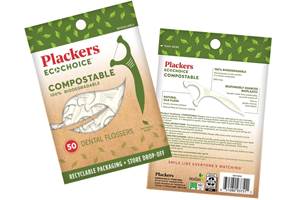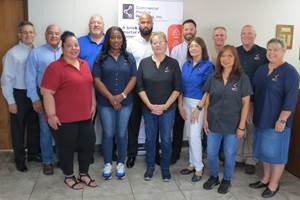NatureWorks Aims for 100 Percent Certified Sustainable Feedstock by 2020
Agricultural feedstocks for Ingeo PLA biopolymer will be certified as environmentally and socially sustainable by third party ISCC.
A new initiative at NatureWorks will ensure that by 2020 fully 100 percent of the agricultural feedstock for Ingeo PLA-based biopolymers and Vercet performance chemicals will be certified by the International Sustainability & Carbon Certification System (ISCC) to the ISCC Plus standard of best practices in agricultural production. (ISCC is a global sustainability certification system applied by more than 3300 companies in 100 countries.)
NatureWorks was the first biopolymers manufacturer to become certified to the new ISCC Plus standard in 2012, and currently it has more than 40 percent of its agricultural feedstock certified. At full capacity, more than 90 farms will be involved in the program by 2020.
The ISCC Plus certified crops are grown within 50 miles of the NatureWorks’ Blair, Nebraska, production facility, which has an annual production capacity of 331 million lbs (150,000 m.t.) of Ingeo biopolymer. Every farm entering the program receives training in adhering to the ISCC Plus certification’s principles, which are the following:
- Protect highly biodiverse and high carbon stock areas.
- Implement best agricultural practices for the use of fertilizers and pesticides, irrigation, tillage, soil management, and the protection of the surrounding environment.
- Promote safe working conditions.
- Comply with human, labor, and land rights.
- Comply with laws and international treaties.
- Implement good management practices and continuous improvement.
“New materials innovation is being driven by the tenants of the circular bioeconomy, and as we seek to decouple plastics from fossil feedstocks, we remain committed to feedstock diversification and to critically assessing the sustainability of each and every feedstock we use,” said Rich Altice, CEO and President of NatureWorks.
ISCC Plus is an independent third-party sustainability certification system developed in a multi-stakeholder initiative. The comprehensive program certifies the sustainability of agricultural feedstocks used for biobased products, including both the environmental and social aspects of agricultural production. Site specific audits and certificates ensure full traceability and chain of custody along the supply chain, validating that the total volume of Ingeo received by the final user of the product can be traced back (and documented through a mass balance system) to the equivalent amount of certified, sustainable crop produced. ISCC certification has been adopted by global brands and is supported by non-governmental organizations.
Said ISCC Association Chairman Gernot Klepper, “We are very happy about NatureWorks’ commitment to sourcing sustainable agricultural feedstock. Agricultural producers have both a responsibility and a tremendous chance to contribute to meeting the Sustainable Development Goals of the United Nations. Certification with ISCC Plus enables farmers to move toward more sustainable agricultural practices, thus supporting ecologic and social, as well as economic sustainability in agriculture and rural areas.”
As part of NatureWorks’ commitment to renewable, sustainable feedstocks and materials, the Ellen MacArthur Foundation recently announced that NatureWorks, along with other global brandowners and manufacturers, has signed the New Plastics Economy Global Commitment. As a signatory, NatureWorks committed to the following in support of sustainable agriculture for bioplastics:
- By 2019, 60 percent of the company’s feedstock will be certified as sustainably and responsibly managed via ISCC Plus.
- By 2020, 100 percent of feedstock will be certified as sustainably and responsibly managed via ISCC Plus.
- By 2025, 100 percent of new feedstocks for additional manufacturing capacity will be certified as sustainably and responsibly managed via an independent third-party administered program.
Related Content
The Importance of Mass Balance in Chemical Recycling
Approaches to mass balance can dramatically impact calculations of recycled content.
Read MoreNPE2024 Wrap-Up: Sustainability Dominates Show Floor News
Across all process types, sustainability was a big theme at NPE2024. But there was plenty to see in automation and artificial intelligence as well.
Read MoreHow to Optimize Injection Molding of PHA and PHA/PLA Blends
Here are processing guidelines aimed at both getting the PHA resin into the process without degrading it, and reducing residence time at melt temperatures.
Read MoreInside the Florida Recycler Taking on NPE’s 100% Scrap Reuse Goal
Hundreds of tons of demonstration products will be created this week. Commercial Plastics Recycling is striving to recycle ALL of it.
Read MoreRead Next
Lead the Conversation, Change the Conversation
Coverage of single-use plastics can be both misleading and demoralizing. Here are 10 tips for changing the perception of the plastics industry at your company and in your community.
Read MoreFor PLASTICS' CEO Seaholm, NPE to Shine Light on Sustainability Successes
With advocacy, communication and sustainability as three main pillars, Seaholm leads a trade association to NPE that ‘is more active today than we have ever been.’
Read More












